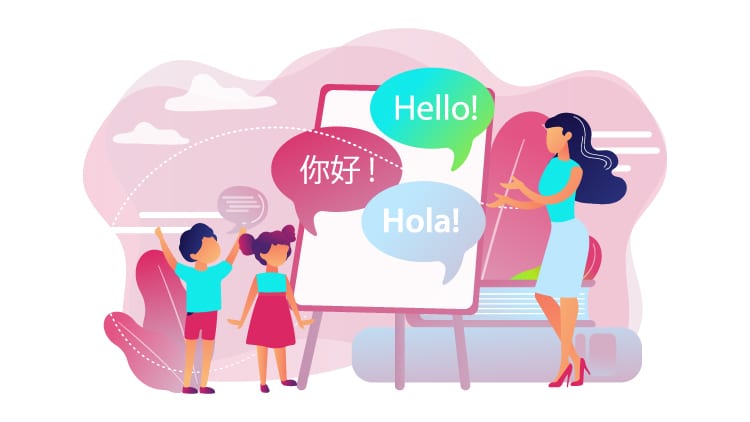
Hurdles in Communication and Types Of Interpreting:
Communication is very important for the survival of the human race. Here is where it comes to communication and Interpreting and the types of interpreting. But there are a lot of hurdles in our everyday communication. However, things are a lot better today than they were in the past. When people had to use messengers to send a message to someone, it used to take days before the note arrived at its destination. Even the use of horses did not speed up the process by modern standards. Today, we have smartphones in our pocket and 4G services. You can send a message to someone and it will reach its destination within seconds. You can also call someone who is thousands of miles away from you and get connected in a couple of seconds.
Help of a Linguistic Expert
But despite all the progress we have made, there are still a few hurdles in our communication. People of the world speak different languages, which is why it is impossible for them to communicate with each other without the help of a linguistic expert. Language barrier can come between people and create misunderstandings. Although translation can help us with documents written in foreign languages, it can’t assist in direct communications. When it comes to face-to-face communications, interpretation services are needed. But what types of interpreting are there?
What is Interpretation?
Different types of language services are available today. People can choose the one that matches their needs. Although most people require translation in their everyday lives, interpretation is just as important. During interpretation, a qualified interpreter listens to the speech of the speaker and interpret it for the audience in the target language. The speed at which the interpreter works depends on the type of interpreting they are carrying out. There are different types of interpreting vs translating and they are all useful in different situations. Business meetings are the most common settings when people require interpretation services. The service allows the participants to discuss ideas with each other without worrying about the language differences.



What Kind of Interpreters Are There?
Interpreters are not only just experts who can interpret a language, but they are also sharp thinkers who can come up with the needed results within seconds. They interpret everything from conversations to documents. Where translators focus on accuracy and official quality of translations, interpreters have to make sure that the message is presented in a way that it can be understood by the audience. Interpreters have the option to not stick to the source material. They don’t have to carry out word to word interpretation.
With changing technologies, more and more different types of services are becoming available for people. Today, you can get interpretation over phone or video call too. But you cannot know what kind of service you require until you learn about the different types. Here are the kinds of interpreters currently working in the language industry:
-
Simultaneous:
A simultaneous interpreter is someone who interprets the content from the source language into the target language in real-time. Once the speaker starts speaking, the interpreter waits for a couple of seconds and then begins interpreting. The most common example of simultaneous interpreting is when the United Nations is in session. Officials from all over the world attend the Security Council meetings. In such a situation, simultaneous interpreting is necessary. Simultaneous interpreting can make it possible for everyone in the attendance to understand all the speakers.
Simultaneous interpreters usually sit in a soundproof booth and wear a headset. They listen to the speech of the speaker in the headset and speak in a mic. Their interpretation is conveyed to the audience in real-time. Simultaneous interpretation gives speaker a chance to speak freely without having to take pauses.
-
Consecutive:
A consecutive interpreter is someone who begins interpreting once the speaker has stopped talking. In consecutive interpreting, the speaker stops talking after a sentence or two so that they can be interpreted. Consecutive interpreting can be helpful in a number of situations. When people go on business trips overseas, they hire a consecutive interpreter. It can also be helpful when a company has to conduct interviews of foreign employees. Although consecutive interpreting takes more time than simultaneous one, it is still quicker than translation and is favored by businessmen around the world.
Consecutive interpreting services give the speaker a chance to take pauses during their speech and collect their thoughts before continuing. The pause can be very helpful in business settings. It can help people understand a point before they move forward with an idea.
-
Telephone:
Telephone interpreters do the same job a consecutive interpreter but over the phone. The translation service: “Telephone interpreting” has become very useful in recent years. It gives people a chance to carry out meetings in their offices easily. They don’t have to worry about the presence of the interpreter in the office. Telephone interpreting makes it easier for people to maintain their anonymity. Telephone interpreting is also very helpful in situations when people can’t gather in one place but still have to conduct an important meeting. While we are facing a pandemic, the importance of telephone interpreting has become more apparent to people. It is also not as costly as inviting an interpreter to your office and paying for their travel expenses.
-
Whispered:
Another type of interpretation is needed in court rooms. Interpreting services are very important in cases involving people with low English proficiency. In whisper interpreting, the professional interpreter sits with their client and explain what is happening in the court in the target language. Whispered interpretation not only gives people a chance to understand the court proceedings but to fight for their rights in a better way. Along with whispered interpretation, video remote interpreting services are also used in courts some times. Through video conferencing, interpreters can observe the court room and offer accurate interpretation to their client.
-
Sign Language:
Sign language interpreters interpret sign language for deaf and hard of hearing people. They work everywhere from academic institutes to public forums. While usually interpreters have extraordinary listening abilities, sign language interpreters are also expert at using the signs to carry out the interpretation in real time. These interpreters listen to a speech in the source language and then interpret it using gestures to the audience.
Why Use Interpretation?
The types of interpreters show how important interpreting services are in different situations. With the help of interpreting services, you will be able to get over the linguistic barrier that could have kept you from communicating with others. From conducting business overseas to hiring foreign employees, companies can benefit greatly from the services of an interpreter. Individuals can also rely on interpreter when traveling overseas. Politicians and government officials all over the world also rely on the services of interpreters to communicate with each other.
Qualified Expert
Whether you require consecutive interpretation, simultaneous interpretation, or any other form of interpreting, a professional interpreter will not disappoint you. As long as you hire a qualified expert, you will be able to get accurate interpretation. Linguistic barriers won’t stand in your way as long as you have a qualified interpreter on your side. However, it is important to figure out what kind of interpreting service will be ideal for you. Telephone and video interpreting are becoming more popular these days simply because they are easily accessible and cost effective. So, make the right choice if you need interpretation and hire qualified professionals.


